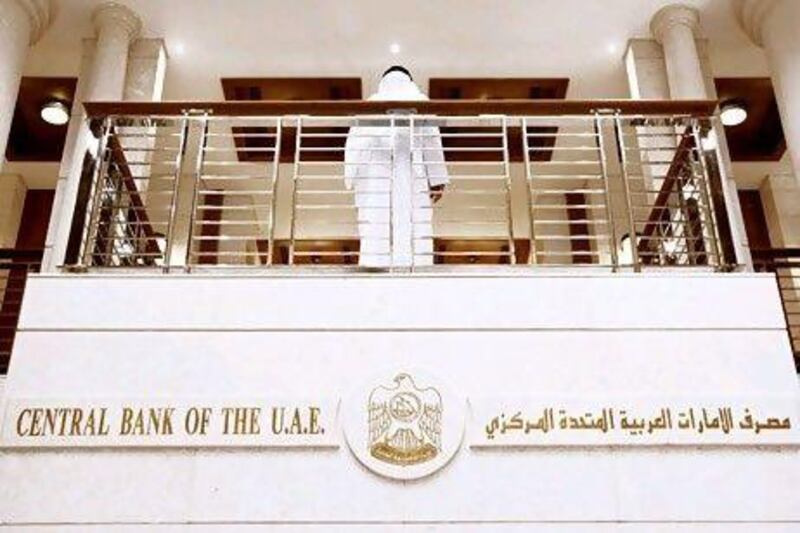The Central Bank has told lenders in the UAE to look for accounts, investments and funds linked to individuals with ties to the Syrian government led by Bashar Al Assad as Arabian Gulf states step up action against the country.
On Thursday, the Central Bank sent a circular instructing lenders to submit all findings within three days, bankers said.
The move follows the imposition of economic sanctions by the Arab League against Syria in November, the first time it had called for sanctions against an Arab state. These included travel bans and asset freezes.
The United Nations Security Council has so far not applied any sanctions to Syria, following efforts by Russia and China to block such a measure.
The European Union and the United States have imposed unilateral sanctions against the Syrian government, however.
On Saturday, Sheikh Abdullah bin Zayed, Minister of Foreign Affairs, called for a change in strategy to put an end to Mr Al Assad's "crimes and massacres against the Syrian people". He was speaking at a Friends of Syria conference in Paris.
The group has called for still more extensive sanctions against Syria.
Other Gulf countries have also taken action against Syria's financial sector recently.
In May, the US slapped Syria International Islamic Bank with sanctions, accusing the bank of being a conduit for the Syrian government's efforts to obtain weapons of mass destruction.
The move against the bank was made in conjunction with the Qatari government. The bank was launched in 2007 by investors, including Qatar International Islamic Bank.
The Central Bank was not available for comment on its instruction to banks in the Emirates.
But requests from the bank to investigate accounts have become more commonplace since the Arab Spring that led to successive rounds of international sanctions against countries including Libya, said Ashok Anjan, the head of compliance at Commercial Bank International.
Such moves would help the Central Bank to "keep the finger on the pulse" of the local banking sector to more closely monitor vulnerability to the Syrian regime, said Lisa Kelaart-Courtney, the head of compliance services at Clyde & Co, the law firm.
"They've become more proactive over the past few years and it's a sound risk management approach to ascertain a particular institution's exposure to the country as a whole for many reasons, including any potential sanctions," she said.
Banks in the UAE have been caught out by sanctions in the past.
In February, Noor Islamic Bank revealed it had cut off all ties with two Iranian lenders after it learnt that the US government would apply pressure to banks linked to Iran's oil trade. The bank said that its only exposure to Iran was a result of the UAE's clearing system.
twitter: Follow and share our breaking business news. Follow us
iPad users can follow our twitterfeed via Flipboard - just search for Ind_Insights on the app.





